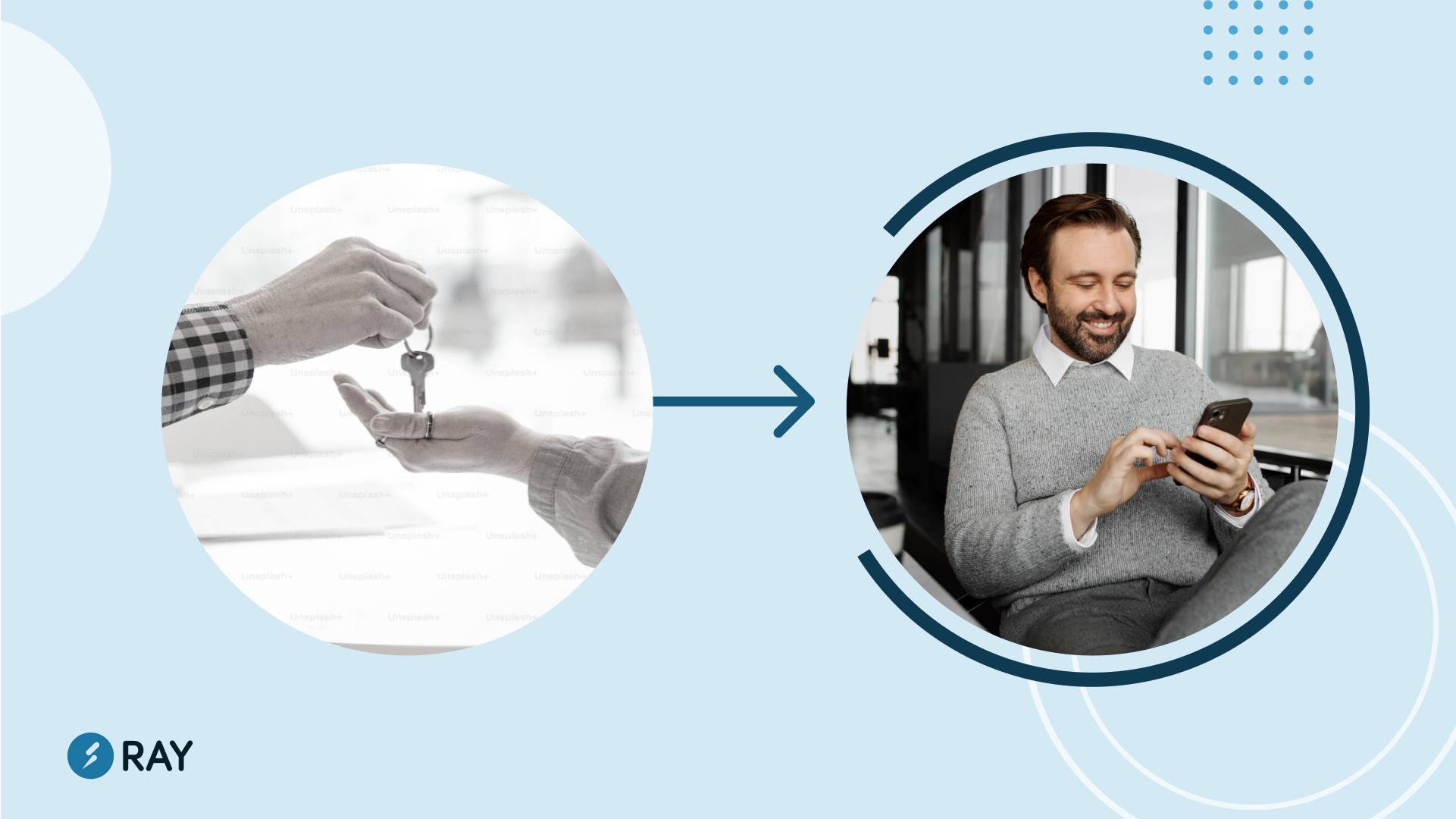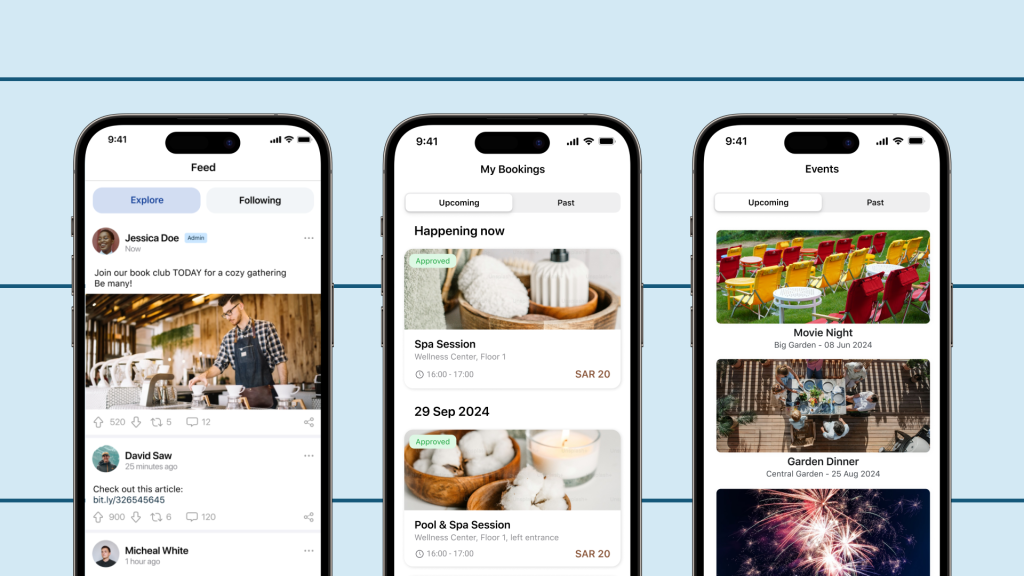

Technology is rapidly reshaping the real estate landscape, driving a fundamental shift from traditional practices to data-driven, digital platforms.
This transformation highlights the growing importance of PropTech – the fusion of property and technology – which is revolutionizing how we interact with buildings.
With the property management SaaS market expected to reach $50.79[1] billion by 2032, security can no longer be regarded as an option. It’s a must.
Thus, as the industry embraces PropTech, safeguarding safety, privacy, and well-being becomes paramount.
This article delves into:
PropTech or property technology, refers to the fusion of real estate and innovative technology, a fusion which has completely transformed the real estate industry. It’s about using technology to streamline the property management process[2] (from screening tenants, to collecting rents and repairs to providing real-time analytics. Its solutions may also leverage technologies like artificial intelligence, virtual reality, and data analytics to revolutionize everything from transactions to city planning[3].
PropTech has revolutionized both property management and resident engagement.
By automating tasks[4], it has transformed property managers’ roles[5] into ones centered more around enhancing the resident experience through data analysis, personalization, and community building. As a result, this reshaped relationship between property managers’ and residents has enhanced resident engagement and fostered collaborative communication.[6]
That’s why PropTech offers a win-win for both property owners and residents.
It not only saves time and money, but it also enhances operational efficiency, resident experience and residential security.
Physically, it quickly deters unauthorized access and allows[7] for swift responses to potential threats by making use of smart access controls like biometric verification, real-time monitoring, and a unified network of video surveillance, smart locks, and IoT sensors.
Digitally, it prioritizes data protection through encryption, adherence to cybersecurity best practices[8] & data privacy regulations (like GDPR).
Before PropTech, property managers faced significant security challenges that affected both their operations and the safety of their assets.
They depended on manual security measures like physical keys and traditional locks, which were easily lost or stolen through unauthorized access or tampering. Outdated key systems, fragmented surveillance, and limited monitoring capabilities left buildings exposed to potential break-ins and threats. This naturally entailed delay in response time and heavy reliance on on-site personnel, thereby, increasing operational[9] costs.
Cybersecurity was equally worrisome, with weak data protection[10], phishing attacks, and non-compliance with evolving regulations. Public liability concerns (slips, fires) and the security of unoccupied spaces also added another layer of complexity.
The situation was further exacerbated by inefficient maintenance practices[11] that neglected regular checks and servicing of critical security equipment. Moreover, the absence of data analytics prevented property managers from identifying security patterns and proactively addressing potential threats.
Additionally, difficulty in providing a smooth streamlined experience for tasks like rent payments, and maintenance requests meant it was hard to keep residents happy[12]. Thus, limited automation and inefficient workflows hindered resident satisfaction and lease compliance, compromising overall security and property maintenance.
This meant properties were left vulnerable to security breaches, theft, vandalism, and unauthorized access. Hence, the emergence of PropTech and resident engagement apps has revolutionized real estate, equipping property managers with the tools to overcome these challenges and significantly improve property and resident safety.

Resident engagement apps are apps designed to improve communication and foster a sense of community within apartment buildings. They provide a central platform for residents and property managers to share updates, book amenities, and manage tasks directly from their phones.
Through interactive features like discussion forums and event calendars, they make communication efficient, foster resident connections, offer convenient self-service options, encourage a supportive community atmosphere, and make residents more alert and cooperative.
They address security concerns for both tenants and property managers through several key capabilities.
By streamlining communication and centralizing access[13] management, they provide a robust system for controlling entry, ensuring only authorized individuals access specific areas. This facilitates incident reporting, swift responses, and transparent communication, fostering a more secure community. Moreover, their visitor management features enhance security by allowing residents to pre-approve guests. Their mobile access options[14] minimize risks associated with traditional keys, and their real-time notifications[15] keep everyone informed about building events, and updates.
They also uphold stringent data privacy standards and compliance with regulations to protect resident information. Additionally, they streamline maintenance requests and enhance resource management through automated amenity booking, efficient maintenance request processes, and facility use optimization. This ensures timely repairs and management for a safer building. Furthermore, community-building features[16] like forums & events[17] promote a sense of resident belonging, vigilance and engagement. Couple that with data collection and feedback[18] features and you’ll have the optimal setup for preemptive threat detection and swift action resolution.
When selecting a resident engagement app that caters to security, it’s best to consider the following factors:
1. Security of Data and Privacy: Make sure it uses robust data encryption, safeguards data storage, and implements privacy protocols to secure confidential information.
2. Ease of Use: It should be user-friendly[19], allowing effortless navigation and operation by all users, so that it doesn’t compromise on security.
3. Ability to Scale: It should be capable of expanding alongside your business, efficiently managing a growing volume of data and an increasing number of users without affecting performance.
4. Regulatory Adherence: It should adhere to applicable industry standards[20] and legal regulations, including GDPR for the safeguarding of data.
5. Reputation of the Provider: Look for a recognized service provider, one that is known for dependable security measures and excellent customer service.
6. Integration Compatibility: Ensure the application can easily integrate with existing systems and Internet of Things (IoT) devices to enable a holistic approach to security management.
7. Notifications and Monitoring in Real Time: Seek out functionalities that offer instant notifications of security incidents or unusual activity.
8. Continuous Software Updates: Make sure the service provider consistently releases software updates to combat emerging security challenges and fix potential vulnerabilities.
9. Community Engagement: It should facilitate communication and information sharing for a safer environment.
10. Cloud-based Vs On-premise: Choose a cloud-based SaaS over an on-premise one, for it offers centralized security management, expert security handling, improved DDoS protection, shared responsibility, regulatory compliance, scalability, and reduced administrative costs[21].
Security is the cornerstone of PropTech.
Don’t settle for less.
RAY Labs empowers you with a secure, white-labeled, all-in-one cloud platform for property management. Leverage top-notch data encryption, access controls, secure communication, and seamless integrations.
Simplify, Secure, and Streamline Your Property Management.
Sources:
[1] Proptech Market Size, Share, Trends | Forecast Report [2032] (Fortune Business Insights)
[2] Proptech: Its Definition and 29 Examples 2024 (Built In)
[3] Proptech in 2024: Emerging Trends & Technologies (Idea Usher)
[4] What is the impact of proptech on property management teams? (LinkedIn)
[5] Property Managers 2029: How Proptech is Revolutionizing the Role (Homebase)
[6] Proptech’s Implementation Impact on The Resident Experience (Forbes 2023)
[7] Connecting the Dots Between Security and Proptech (SystemSurveyor, 2022)
[8] What are the most innovative security solutions for proptech? (LinkedIn)
[10] Understanding cyber risks in real estate |PwC Canada 2021
[12] How Property Managers Can Address an Evolving Industry (Second Nature 2023)
[13] Improving Security in Residential Communities: The Benefits of a Resident App (EntranceIQ)
[15] Essential software tools for efficient Property and Real Estate Management |Proprli 2024
[16] What are the most effective ways to use proptech for commercial building security? (LinkedIn 2024)
[17] Using Technology to Improve Residential Engagement: A Guide for Property Developers | Spaciable 2024
[18] 5 Benefits of Increasing Resident Engagement in your Community |Buildinglink 2022)
[19] Why Your Resident Engagement Strategy Needs a Resident Engagement App? (elevatedliving.com)
[20] What Residents Do on a Resident Engagement App | Flamingo (getflamingo.com)
[21] On-premise vs Cloud-based Property Management Systems |Booking Ninjas 2023